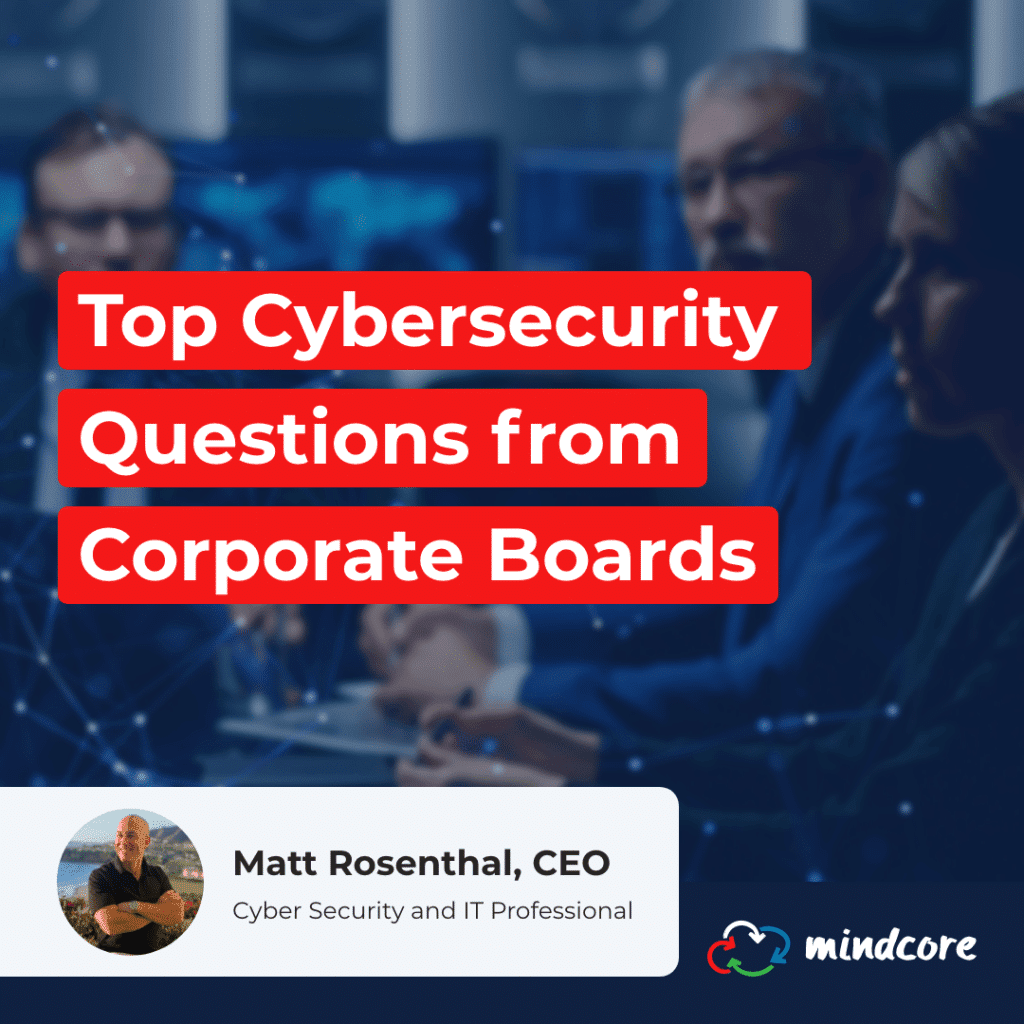Updated in 2026

Corporate board members have a fiduciary responsibility to establish and oversee policies and practices that protect the organization and drive long-term performance. Today, that responsibility clearly includes understanding cyber risk, the business impact of a breach, and what leadership is doing to reduce exposure.
Cybersecurity is now a standing agenda item in many board meetings. CISOs and IT leaders must be prepared to answer direct, outcome-focused questions. Below are six of the most common cybersecurity questions boards ask, along with guidance on how to address them clearly and confidently.
1. What are the most important assets, or “crown jewels,” that we must protect?
Boards want clarity on what truly matters to the business. These assets may include customer data, financial systems, intellectual property, operational platforms, or proprietary processes.
A strong cybersecurity program starts with asset identification and prioritization. If leadership cannot clearly define what must be protected, security strategy becomes fragmented and ineffective. Alignment on critical assets is foundational to risk management.
2. What layers of protection do we have in place?
No organization can be 100 percent secure, but risk can be managed through layered defenses. Antivirus software alone is not sufficient.
Boards expect to understand the full security stack, including preventive, detective, and responsive controls, often anchored by a zero trust secure workspace platform like ShieldHQ that enforces identity, segmentation, and continuous monitoring. This may include endpoint protection, network security, identity management, monitoring tools, and incident response capabilities. Each layer should have a defined purpose and measurable effectiveness.
3. Is our cybersecurity program compliant with industry standards and regulations?
Compliance is a core board concern. Directors want assurance that cybersecurity practices align with recognized frameworks such as NIST, ISO, or GDPR, as well as any industry-specific regulations.
This is especially critical for organizations in regulated sectors such as healthcare, legal services, and finance. Boards should be able to see that cybersecurity governance follows a documented structure and that compliance is continuously monitored, not treated as a one-time exercise.
4. How do we know if we have been breached? How do we detect incidents?
Detection capabilities are essential. Many breaches go undetected for weeks or months, increasing damage and recovery costs.
Boards want to know how threats are identified, how quickly alerts are reviewed, and how confident leadership is in detection coverage. Effective detection relies on multiple systems working together, not a single tool. Visibility, monitoring, and escalation procedures should be clearly defined.
5. What are our response plans if a cyber incident occurs?
A breach can lead to downtime, financial loss, regulatory penalties, and reputational harm. Boards need confidence that the organization can continue operating during and after an incident.
This includes having tested incident response, business continuity, and disaster recovery plans. Leadership should be able to explain who does what, how decisions are made, and how operations are restored. Regular testing and tabletop exercises are critical to readiness.
6. Is our cybersecurity investment appropriate, and how are resources allocated?
Cybersecurity budgets, like all investments, must be aligned with risk tolerance and business objectives. Boards understand that unlimited spending does not guarantee perfect security.
What they want is assurance that resources are allocated intelligently. This includes having skilled personnel, the right tools, and a process for regularly reassessing risk. Ongoing evaluation helps determine when additional investment is justified and where it will have the greatest impact.
Experienced Cybersecurity Guidance
Mindcore Technologies works with organizations across New Jersey, Florida, and throughout the United States to strengthen cybersecurity posture and improve board-level visibility into risk.
Our services include penetration testing, vulnerability assessments, security strategy development, and ongoing advisory support. We help leadership teams translate technical risk into clear business terms.
For answers to board-level cybersecurity questions or to schedule a consultation, contact our team today.
